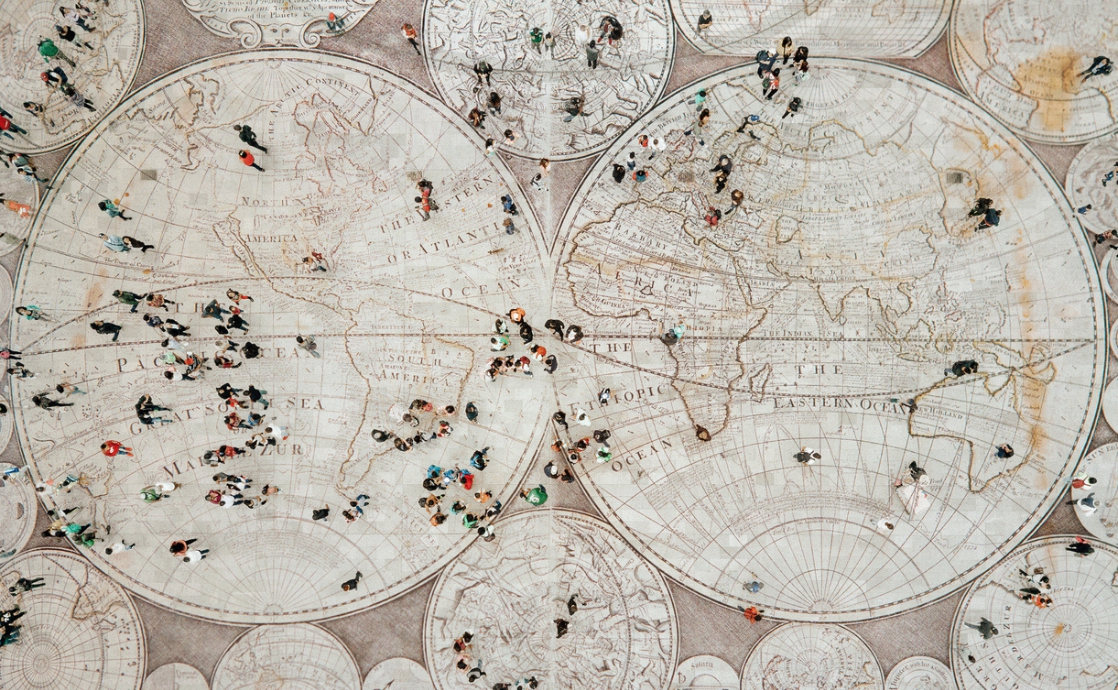The views expressed in our content reflect individual perspectives and do not represent the authoritative views of the Baha'i Faith.
With several regional wars raging, the world currently seems to be heading away from the goal of world peace. Can reason and science change this terrible trend?
Einstein’s words “Science without religion is lame, religion without science is blind” still apply now in the 21st century.
However, over the course of human history during the past several centuries, reason and science don’t appear to be sufficient antidotes to war. Despite our great technological, intellectual, and educational achievements, wars still kill us.
RELATED: The Great Debate: Logic Versus Faith. Both Win.
What can we learn about stopping wars from the great philosophers?
The influential philosopher Immanuel Kant’s trust in reason underpinned his vision of the future of humanity: only with global citizens in a federal world republic, he maintained, can we end all wars and build a lasting peace.
Kant, who lived in the 18th century, made this vision relevant to us today. If philosophers have the right to look prophetically into the future; founders of religions must do so, as well.
Baha’u’llah, the prophet and founder of the Baha’i Faith, did exactly that when he revealed this command: “We have enjoined upon all mankind to establish the Most Great Peace — the surest of all means for the protection of humanity.“
So let’s explore that golden goal, the peace and security of humanity, from both a philosophical and a religious perspective, and examine the remarkable parallels between them.
Kant’s Vision of the Future
Bloody wars have been part of every age. In contrast, in his “Perpetual Peace” (1795), Kant developed the idea of the “perfect civil union of the human species” in a federal world republic.
Kant based his prescription for peace not just on trust in the goodness of people or even in divine providence, but solely on the basis of reason and law. According to Kant, reason is given to all people in common, while religion — in his words “ecclesiastical” — satisfied the interests of those in power. Reason and law, Kant’s philosophy asserted, could take three steps toward a peaceable world:
1. For Kant, the first step should be citizenship rights within a people. The emerging nation-states of the 19th century were already moving in this direction with their constitutions.
2. In a second step, Kant said that disputes between states should be regulated by international law. This was first achieved, but only briefly and partially, with the League of Nations after the catastrophe of the First World War that originated in Europe.
3. Kant’s third step recommended a “world citizenship” in which everyone is a “… citizen of a general human state.” In this global commonwealth he said that a “supreme legislative, governing and judging power” would ensure that conflicts could be resolved non-violently, with each nation voluntarily joining a federal world republic. The sovereign “right of the strongest” would then finally be replaced by a law based on reason and therefore universally valid.
After World War II, the founding of the United Nations with its “Universal Declaration of Human Rights” began to extend the rights of the individual beyond national borders.
Of course, Kant’s lifetime was anything but ripe for his advanced ideas. Kant’s reputation, and that of others who thought like him, soon faded away amidst the chaos of the American Revolution of 1776 and the French Revolution of 1789, followed by the bloody rivalries of the emerging European nation-states. A global era of sovereign nationhood began.
Half a century later, the romantic and ironic-rebellious German poet Heinrich Heine was also concerned about well-being on Earth in his inciting poem from 1844: “… We want to establish the kingdom of heaven here on earth … We leave heaven to the angels and the sparrows.” Heine died in political exile in France in 1856, hated by German nationalists and anti-Semites.
Even the “philosopher of decline” Friedrich Nietzsche was not satisfied with the traditional consolation of religions to a better life in the afterlife. Poets and philosophers in his epoch strengthened the will to “progress on earth” demanded by the Enlightenment and industrialization. Meanwhile, the ideologies of nationalism, imperialism, and rapidly-growing materialistic ways of thinking drove the development of civilization. Traditional religious ideas adapted to this trend or resisted it.
Baha’u’llah’s Vision of the Future: The Time Is Now Ripe
In some ways the world currently seems to be heading in the opposite direction from Kant’s ideas of a new order: successes against global climate change are getting tangled up in national self-interests; global security thinking and the idea of world peace often falls under the wheels of geopolitics.
But anyone who recently saw the Oscar-winning film “Oppenheimer” understands that nuclear weapons fundamentally changed our world. Even if there is only talk of so-called “tactical nuclear weapons,” which sound trivialized but are not at all, the potential for the use of nuclear weapons is more dangerous than ever in a world armed to the teeth and seething with ever-increasing tensions. This means that Kant’s vision of world peace in a “federal world republic” inhabited by global citizens is no longer a mere philosophical daydream — it has become an imperative, absolutely necessary and inevitable as the next step in human evolution.
The Baha’i writings see peace as an unavoidable future task that is in the interest of all humanity, and have given humankind a pathway to establishing a peaceful world order. Shortly before the Second World War, Shoghi Effendi, the Guardian of the Baha’i Faith, reiterated Baha’u’llah’s teachings about global human unity as he warned the world against clinging to sovereign, inviolable nation states:
Unification of the whole of mankind is the hall-mark of the stage which human society is now approaching. Unity of family, of tribe, of city-state, and nation have been successively attempted and fully established. World unity is the goal towards which a harassed humanity is striving. Nation-building has come to an end. The anarchy inherent in state sovereignty is moving towards a climax. A world, growing to maturity, must abandon this fetish, recognize the oneness and wholeness of human relationships, and establish once for all the machinery that can best incarnate this fundamental principle of its life.
RELATED: Learning the Spiritual Ethics of Love and Unity
The focus on the future of this world in the Baha’i teachings may seem unfamiliar to many, since the idea of a global governmental order is a new concept in the history of religion. But it is a response, in the language of the Enlightenment, to the long-overdue emancipation of human reason from a traditional church understanding of religion. Truth cannot be found through tradition; it depends on reason in addition to the revealed word. The Baha’i teachings say that:
The unity of the human race, as envisaged by Baha’u’llah, implies the establishment of a world commonwealth in which all nations, races, creeds and classes are closely and permanently united, and in which the autonomy of its state members and the personal freedom and initiative of the individuals that compose them are definitely and completely safeguarded. This commonwealth must, as far as we can visualize it, consist of a world legislature, whose members will, as the trustees of the whole of mankind, ultimately control the entire resources of all the component nations, and will enact such laws as shall be required to regulate the life, satisfy the needs and adjust the relationships of all races and peoples.
Such a concrete understanding of a world order that encompasses humanity as a whole may sound unusual for a religion. However, the Baha’i writings assert that people do not only have material needs — instead, our spiritual nature, which includes reason, serves as the central task of humankind, maintaining a balance between the material and spiritual worlds. In order to have peace, we must center our attentions on both.So it is not reason that has failed us. The world is now more ripe than ever for Kant’s vision of world peace within the framework of a federal world republic. To do this, the balance must be restored between the two wings of the “bird of humanity” — faith and reason, religion and science. Only in this way can Baha’u’llah’s primary teaching — “The earth is but one country, and mankind its citizens” — become reality.
An earlier version of this article first appeared in German here: https://www.perspektivenwechsel-blog.de/bahai-artikel/kant-prophet-vernunft-2
















Comments
Sign in or create an account
Continue with Googleor